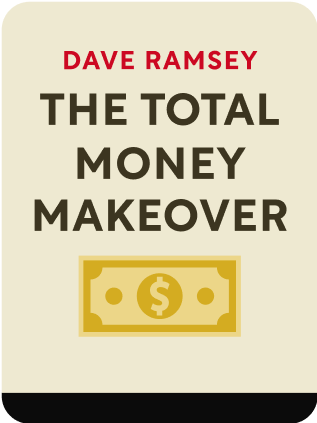

This article is an excerpt from the Shortform book guide to "The Total Money Makeover" by Dave Ramsey. Shortform has the world's best summaries and analyses of books you should be reading.
Like this article? Sign up for a free trial here .
What is the Dave Ramsey plan? How does the Dave Ramsey plan help you take control of your financial health?
The Dave Ramsey plan, also known as the Total Money Makeover program, is a process for taking control of financial life. You have to confront problems and take action.
Read on to better understand the Dave Ramsey plan, its origins, and how it might work for you.
Introduction to the Dave Ramsey Plan
To understand why you have money problems—why you’re heavily in debt and can never seem to make ends meet or handle emergencies—look in the mirror. Your financial situation is a result of your behavior, according to radio talk show host and author Dave Ramsey.
In the Total Money Makeover, Ramsey lays out a program for freeing yourself from debt and money worries by changing your behavior: paying with cash only, eliminating debt, saving for emergencies, and investing. The program is intended for everyone—from high earners to people thousands of dollars in debt. This program is also known as the Dave Ramsy plan.
Rather than offering investment advice, original insights, or the “secret” to becoming rich, Ramsey presents common-sense principles assembled in a step-by-step sequence that can change your financial situation and your life.
The Lesson of the 2008 Recession
As a storm reveals weaknesses in the structure of a house, a personal or national economic crisis reveals the weaknesses in your financial foundations.
The 2008 financial crisis illustrated that people and companies can be lulled into doing foolish things in good times that sink them when things go south.
The recession was triggered by financial institutions, companies, and individuals taking on too much risk and debt for the sake of greed. This had ripple effects, destabilizing not only foolish companies, but also many businesses and people who had been relatively well off but who lacked a financial cushion.
The key lesson: what works, or seems to work, in good times won’t enable you to survive in bad times unless it’s based on sound financial principles.
In How the Mighty Fall, Jim Collins writes that the first stage of business failure is a feeling of invincibility that leads to taking risks. For an individual, the risks could be buying on credit and not saving because you’re confident your job is secure or because others are doing it. But
overspending, whether it feels “safe” or not, is still foolish. As Ramsey puts it, a turkey may fly in a tornado (people may succeed at doing foolish things in special situations), but that doesn’t mean turkeys can really fly.
Your financial principles will determine whether you succeed in life. If you build a house based on unsound principles, it eventually will fail. The Total Money Makeover principles are sound and, therefore, work in both good and bad times.
The Dave Ramsey Plan Motto: Live Differently From Everyone Else
If you follow the Total Money Makeover, you’ll become wealthy within a few decades. While it’s an enormous relief to be out of debt and financially secure, be aware that having wealth can get you into trouble in several ways.
1) You may become overly entranced with it. Money and the stuff it buys won’t bring you happiness. A person obsessed with money is just as enslaved as a person deeply in debt.
2) Wealth will reveal and magnify your true character. If you’re a jerk, money will make you an even bigger jerk. If you’re kind and generous, you’ll be even more so with your wealth. If you feel guilty about having money, your guilt will grow.
It takes spiritual maturity and character to understand that while wealth is fun, it brings responsibility—whether it ruins your life or helps you do good is up to you.
While money isn’t the answer to the meaning of life, it isn’t evil either, as many religious people erroneously believe. This belief is used to justify living a financially unhealthy or mediocre life.
It’s wrong to love and trust money to provide things it can’t provide: happiness, satisfying relationships, and spiritual or emotional well-being. But it’s also wrong to reject money and the good it can do. Further, this thinking would leave all the world’s wealth to evil people.
As a good person, it’s your duty to build wealth and do good with it in order to keep it from bad people—for instance, drug dealers and pornographers—who would otherwise use it for evil purposes.
A Life Makeover
By now, you can see that the Dave Ramsey plan is about more than money; it makes you face up to who you are in the mirror. Because personal finance is 80% behavior and 20% knowledge, you’ll either remake your life—or continue to be miserable.
Based on the experience of tens of thousands of people who followed the steps in this book, you should have hope that you can overcome money problems and live free of debt, break the cycle of debt in your family by not passing on debt to your children, have a secure retirement, and give to others.
The Dave Ramsey plan starts with applying common-sense principles. Anyone can do it, however financially dire their circumstances—even you.

———End of Preview———
Like what you just read? Read the rest of the world's best book summary and analysis of Dave Ramsey's "The Total Money Makeover" at Shortform .
Here's what you'll find in our full The Total Money Makeover summary :
- The 7 steps to achieving financial stability (you'll love #7)
- A fool-proof plan for becoming debt-free
- How myths about debt and money are crippling your financial health






